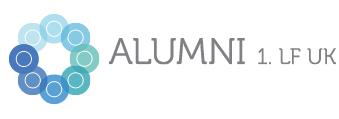Scientific team of Ondřej Havránek
Introducing the scientific team of Ondřej Havránek from Biocev
The group for tumour biology of lymphomas of MUDr. Ondřej Havránek, Ph.D., formed in the Biocev in 2018 after his return from a long-term scientific stay at the MD Anderson Cancer Center in the USA.
The group currently consists of one postdoc (Mgr. Kristýna Kupcová, Ph.D.) and six Ph.D. students (Ing. Tereza Chrbolková, MUDr. Václav Heřman, MUDr. Iva Ondečková, MUDr. Jana Seňavová, Ing. Anežka Rajmonová, and Mgr. Filip Jura). Despite decided progress in our understanding of processes leading to the formation of lymphomas, many aspects of their cell signalling, deregulation of transcription, tumour metabolism, and formation of supportive tumour environment remain unknown. This group therefore focuses especially on understanding in what ways selected genetic alterations of tumour cells and aberrant cell signalling participate in the emergence of lymphomas, in supporting the growth and survival of lymphoma cells, and how these factors influence their metabolic adaptation. The leitmotif of all the group’s projects is the effort not only to better understand the emergence of lymphomas but also to identify new therapeutic targets.
Research projects
Using model cell lines and advanced methods – such as targeted modification of genes using the CRISPR/Cas9 system, detection of activity of signal cascades using FRET biosensors, detection of interaction of proteins in living cells, high-resolution microscopy, or proteomic and genomic methods – the group focuses on several areas. One of them is the elucidation of mechanisms and differences in the activation of signalling from B cell receptors in lymphomas, including the mechanisms and specific features of interaction from B cell receptors to activation of PI3K/AKT signalling pathway with special focus on the involvement of CD19 protein, and elucidation of tumour-specific mechanisms of activation of PI3K/AKT signalling pathway independent of B cell receptors. The group also investigates the effect of tumour-specific signalling on the progress of cell cycle and that not only in relation to signalling from B cell receptors and PI3K/AKT signalling pathway, but also in other signalling pathways that often feature in lymphomas. Team members have also been looking into the highly frequent deletion of the short arm of chromosome 6 and its effect on the regulation of transcription in follicular lymphoma and they analysed new candidate genes connected with the progress of lymphomas. Aside from this, they are also interested in the significance of aberrant cell signalling for metabolic adaptation of lymphomas and the possibility of using circulating tumour DNA as a new instrument in individualised treatment and non-invasive determination and monitoring of the range of tumour-specific mutations in relation to lymphoma biology, response to treatment, developing resistance to treatment, or the risk of relapse. The group is currently the leading researcher of two grant projects (Czech Health Research Council and Czech Grant Agency) and prestigious project Primus of the Charles University. The team moreover participates in several other grant projects of the Czech Health Research Council both as collaborators and as project team members.
Collaboration with the entire scientific
world
Dr. Havránek’s group actively cooperates with other research teams across the Czech Republic as well as abroad. Its most important collaborators are Prof. Davis (MD Anderson Cancer Center, USA), Prof. Klener (First Faculty of Medicine, Charles University), doc. Kryštof (Palacky University in Olomouc), Prof. Chapuy (Charité – Universitätsmedizin Berlin, Germany), Prof. Juszczynsky (Institute of Haematology and Transfusion Medicine, Poland), Prof. Zamboni (ETH Zürich, Switzerland), Prof. Wulf (University of Göttingen, Germany), Dr Seghal (Ohio State University, USA), and Prof. Veelkenen (Leiden University Medical Center, The Netherlands).
You can find further information about the group on its web at
https://havranek-lab.lf1.cuni.cz/about-us
